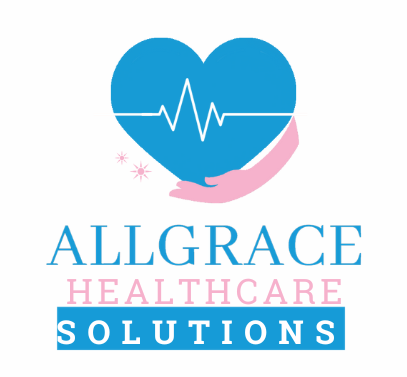Ensuring proper and safe medication adherence remains a significant nationwide concern, particularly among the elderly. Shockingly, studies suggest that approximately 1 in 5 new prescriptions are never filled, and among those filled, nearly 50 percent are taken incorrectly. The management of multiple medications, particularly for seniors dealing with different dosing schedules or cognitive challenges, poses intricate difficulties. While medications undeniably play a pivotal role in improving the quality of life and managing various health conditions, the repercussions of forgetting or incorrectly taking them can be severe. In this comprehensive guide, we delve into the challenges of medication adherence for seniors, retaining crucial facts while enhancing the narrative to provide practical strategies that go beyond the basics, emphasizing a holistic approach to ensure the well-being of our senior population.
Understanding the Landscape of Senior Medication Adherence
The landscape of medication adherence for seniors is rife with challenges. As we explore the nuanced issues associated with this aspect of healthcare, it’s crucial to recognize that each senior’s journey is unique. Managing multiple medications, adhering to diverse dosing schedules, and navigating potential cognitive or memory challenges add layers of complexity. The importance of proper medication adherence cannot be overstated, as it directly influences the effectiveness of treatment, quality of life, and overall health outcomes for our senior loved ones.
Crafting an Informed Approach to Medication Adherence
In the pursuit of optimal medication adherence for seniors, a proactive and informed approach is essential. This involves a deep understanding of the medications prescribed, the potential challenges seniors may face, and the creation of personalized strategies that resonate with the individual’s unique needs.
1. In-Depth Knowledge of Medications
Building a foundation for effective medication adherence starts with a thorough understanding of the prescribed medications. Seniors and caregivers alike should actively engage with healthcare professionals to comprehend the purpose, dosages, and potential interactions of each medication. Reading labels, seeking clarification, and maintaining open communication with doctors and pharmacists form the bedrock of informed medication management.
2. Consolidation and Simplification:
The process of filling prescriptions at the same pharmacy offers a streamlined approach to medication management. This practice enables pharmacists to conduct regular medication reconciliation, minimizing the risk of interactions or duplicates. Additionally, healthcare professionals can explore opportunities to consolidate dosages or synchronize medication schedules, making adherence more manageable for seniors.
Evolving Strategies for Medication Adherence
Addressing the multifaceted challenges of medication adherence for seniors necessitates evolving strategies that adapt to the changing needs and circumstances of the individual. Practical and innovative approaches can significantly enhance the overall well-being of seniors and contribute to a more robust adherence to prescribed medication regimens.
1. Personalized Checklists
As the number of prescriptions increases, a simple weekly written checklist or grid can serve as a visual aid to track medications and dosages. This personalized checklist can evolve based on changes in prescriptions or the senior’s health status, providing a dynamic tool for both seniors and caregivers.
2. Smart Pill Organizers
Embracing technology, smart pill organizers or medication reminder apps can be invaluable tools in ensuring adherence. These solutions not only help organize medications but also provide features like refill reminders, interaction warnings, and the ability to share adherence reports with caregivers or healthcare professionals.
3. Integrated Medication with Daily Activities
Weaving medication routines into daily activities creates habits that are easier to adhere to. Whether it’s tying medication intake to meals or specific daily rituals, integrating medication schedules with established routines enhances consistency and reduces the likelihood of forgetfulness.
4. Regular Pill Counts
Implementing a routine of counting pills serves as an additional layer of verification. This practice allows seniors and caregivers to track adherence, identify any missed doses or potential extra doses, and promptly address deviations from the prescribed schedule.
5. Professional Caregiver Support
Recognizing that medication adherence can remain challenging even with robust systems in place, the option of hiring a professional caregiver comes to the forefront. A dedicated caregiver from AllGrace Healthcare Solutions serves as an extra set of eyes, offering not only physical assistance but also emotional support to seniors in managing their medications.
Benefits of a Holistic Approach to Medication Adherence
Choosing to adopt a holistic approach to medication adherence for seniors brings forth a myriad of benefits. Beyond the fundamental objective of ensuring the correct intake of prescribed medications, a holistic strategy contributes to enhanced overall well-being, improved quality of life, and strengthened connections between seniors, caregivers, and healthcare professionals.
1. Enhanced Quality of Life
Holistic medication adherence aims not only to manage health conditions but also to enhance the overall quality of life for seniors. By tailoring medication routines to align with personal preferences and daily activities, seniors experience a sense of control and purpose in their healthcare journey.
2. Strengthened Family and Caregiver Collaboration
Involving family members in the medication-adherence process fosters a collaborative approach. Families gain a deeper understanding of the senior’s needs, enabling more effective support. Regular communication with healthcare professionals ensures that everyone is aligned in providing the best care possible.
3. Professional Caregiver as a Supportive Partner
The inclusion of a professional caregiver from AllGrace Healthcare Solutions transcends traditional caregiving. Beyond physical assistance, caregivers serve as supportive partners in the medication adherence journey. They offer companionship, encouragement, and an additional layer of safety, contributing to the overall well-being of seniors.
Mastering Medication Adherence with AllGrace Healthcare Solutions
In the intricate landscape of senior healthcare, mastering medication adherence requires a multifaceted and personalized approach. At AllGrace Healthcare Solutions, we recognize the unique challenges seniors face and the importance of addressing medication adherence holistically. Our commitment goes beyond routine caregiving; we strive to be partners in enhancing the quality of life for seniors through informed, compassionate, and comprehensive healthcare solutions. Choose AllGrace Healthcare Solutions for a holistic approach to medication adherence that prioritizes the well-being of your loved ones.






0 Comments